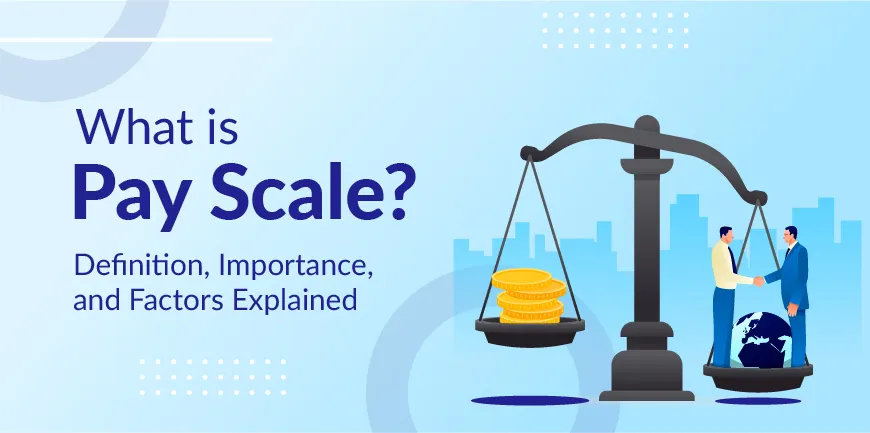
Step By Step Guide On Payroll Migration
15/09/2022
Top 5 Common Compliance Risks and Challenges
01/11/2022
There’s no denying the importance of professional payroll software when it comes to managing
your company’s payroll. The benefits involve an immense saving in effort while providing you
with a great deal of transparency across the whole payroll workflow. It’s all perfectly logical
and simple, so far. But what about the reality of selecting the right solution for your company?
That’s where it gets a lot less simple.
Because there’s no shortage of options to pick from. There is a glut of competing solutions on
the market, all claiming to offer you the best return on investment ROI. You can pick up a
solution from one of the top 5 service software providers on the logic that you are paying a
premium that will justify itself amply. Or you can shop around for a boutique offering that
offers greater customizability. The options can seem endless, and in the case of a small or
medium enterprise (SME), you simply may not have a skilled resource in-house who can wade
through the veritable flood of offerings to find the holy grail of a solution that is the perfect fitfor
your business.
Why Should SMEs Acquire Payroll Processing Software?
Payroll solutions for SMEs or organizations of any size involve a series of elaborate tasks. These
tasks include tracking total work hours, making insurance and tax deductions, and filing tax forms
issuance, overtime calculations, and so on. Each task needs meticulous handling and time. One
simple error can bring discrepancies in the salary credited to an employee that ultimately shows
The seed of distrust of the employee for his/her employer.
This is why small SMEs should outsource payroll processing. This software enables the
handling of all disjointed tasks within a single platform. It provides a single platform for the
concerned HR personnel to interact regarding payroll. This improves collaboration within the
entire department of payroll solutions for SMEs.
Here’s looking at the reasons why HRMS payroll software is important for SMEs and startups:
● Time tracking is made easy by integrating timesheet systems with your payroll software
for real-time monitoring of an individual employee’s login and logout hours. A
sophisticated payroll service software creates automatic workflows to convey the time-
tracking data into the payroll system.
● A payroll service software can consolidate attendance data and working
hours with general payroll data into a report. Such reports are used by decision makers
to analyze costs incurred across the organization and implement cost optimization
wherever applicable. This is a critical requirement for small and medium businesses for
whom cost optimization is a primary business objective.
● This software provides an ideal repository to store employee information, such as the
number of annual leaves taken. It eliminates the necessity to maintain additional
software to record this kind of employee information. In addition, HR professionals get
to access all the information within a single platform. This accelerates payroll
processing and clears the route to do a same-day direct deposit of employee salaries.
● It helps in record keeping and planning future expenses. The payroll system can be used
to plan future costs such as retirement, health insurance, and other benefits. The data
can be collected from the employees and compiled into reports, which can help in
making decisions that are beneficial to the company. The payroll software should be
able to provide accurate information on time so that it is not difficult for the companies
to make decisions regarding their employees or their policies.
Ingredients of an Ideal Payroll Software for Small and Medium
Businesses
Payroll processing software is a comprehensive, integrated system that takes the place of all
the manual forms and calculations that are normally required to pay employees. It is a great
investment for SMEs and startups because it automates many of the time-consuming tasks
associated with managing your payroll and allows you to focus on running your business.
Here’s looking at things that constitute the best software program for payroll processing:
● Access to features such as federal and state tax filings, running payroll for an unlimited
time, time tracking, and accounting software integrations, among others.
● Payroll processing features such as direct deposits, filings, and automatic deductions,
1099s and W-2s. Automated workflows to estimate and file regional, state, and Federal
taxes.
● Integration with human resources software that is fitted with tools for HR auditing,
employee onboarding, document management, and monitoring paid time off (PTO).
● Cloud-based payroll processing software for small businesses is easy to implement and
configure.
● AI-driven error detection algorithms that detect simple or critical mistakes in payroll-
related calculations beforehand.
● Features that enable the payroll administrator to do a same-day salary direct deposit at
no additional cost.
● Access to reporting features that are equipped with multiple report types and the ability
to customize reports based on your business criteria.
● A self-service portal for employees to manage their own data.
What are the Benefits of Payroll Software for SMEs?
Running an SME is quite a challenge. Small and medium-sized organizations are expected to
execute myriad tasks within a shoestring budget and generate maximum ROI within a short
span of time. There is no way that your key decision makers can be burdened with
administrative but critical tasks like managing payroll. This drives the relevance of payroll
software for small businesses. Here’s highlighting the top 8 advantages of having payroll
software.
Detect Mistakes Early
One of the top advantages of having payroll software is that it eliminates manual errors. This is
particularly true if you’re using a paper-based system where you have to manually input data
into each employee’s W2 form at year-end. With an online system, all data is entered into one
place, so there’s less opportunity for mistakes along the way — and fewer chances for human
error when it comes time to file taxes each year.
Time Savings
Payroll is one of those tasks that many small business owners dread because it takes so much
time to do it manually each week or month. Payroll software saves time by automating many
routine tasks, such as calculating wages and deductions from paychecks. It also eliminates the
need to enter data manually into spreadsheets or other programs.
Better Tracking
One of the biggest benefits of small business payroll software is that it helps you stay on top of
your employees’ hours and paychecks. You can track employee time off, sick days, and vacation
days, and make sure that they receive their paychecks accordingly. The software also allows
you to see how much each employee has earned during their time at your company, so that it’s
easy to determine which employees are underpaid or overpaid relative to others in your
company or industry.
Maintaining Data Security
Data security is a top concern for any organization. As an SME or startup owner, you must
ensure that the data that the software collects, processes, and stores is secure from hackers,
thieves, and other threats. Vendors are concerned about protecting their brand reputation so
that customers trust them with their most sensitive information. Here’s how sophisticated
payroll processing software maintains data security:
● End-to-end encryption so that an unauthorized party can’t view or alter employee
information. Encryption also protects against data loss and theft.
● Access control to prevent unauthorized users from accessing sensitive employee data or
making changes to employee records.
● Password protection that involves strong passwords and enforces password complexity
rules. Passwords should be changed regularly so that they don’t become easy targets for
hackers or internal employees who could maliciously abuse their privileges as system
administrators.
● Provide audit trails for all actions taken on employee records. This could include who
accessed an employee record, when they accessed it, what changes were made, and so
forth.
Save Costs
Outsourcing the payroll function allows you to focus on your core business activities instead of
spending time on administrative tasks such as calculating paychecks, filing taxes, or managing
benefits packages for employees. This is a much more cost-effective proposition to pay a one-
time fee for software instead of paying continuous monthly compensation to resources to
conduct individual payroll processing tasks.
Better Tracking of Employee Data
When you use payroll processing software, all the information about each employee is stored in
one place instead of being spread out across multiple documents or files. This means that when
There is an update or change, such as when an employee’s hours change or there is a new tax
rate — the software will automatically update all relevant information for you, so that nothing
gets lost in translation.
Easy Pay Slip Generation
A well-designed payroll processing software generates pay slips for employees to understand
What deductions were made from their salary, and how much money are they left with after
paying all their taxes and other commitments. Good payroll software should be able to generate
pay slips that comply with government regulations regarding information that must be
included in a pay slip, such as:
● The name of your organization
● Employees’ Social Security number (SSN)
● Employees’ address
● Employees’ date of birth (DOB)
What are the Common Features of Payroll Software?
Payroll solutions for SMEs are designed to make your job easier by providing all the tools you
need in one place. Some software solutions will have all these features built in, while others
may require you to purchase additional modules or add-ons before you get everything you
need. The following are some of the most common features found in payroll software:
Direct Deposit
Direct deposit is an electronic payment method that allows an employer to initiate direct
deposits from its own bank account into an employee’s bank account. This method eliminates
the need for employees to visit a branch or bank to deposit their paycheck. The
process involves an employer using its payroll software program to enter paychecks into its
account at its own bank. The payroll software program then sends this information
electronically to the employee’s bank each payday so that the appropriate amount can be
deposited into his or her checking or savings account on payday.
Time keeping
This feature allows employees to clock in and out for their shifts, as well as enter timesheets for
any overtime or other hours worked beyond the normal workday. Timekeeping can also be
used for other purposes, such as tracking vacation time or sick days taken by an employee.
Leave Management
Leave management allows you to easily track how much time an employee has remaining on
vacation, sick, or personal leave, as well as how much they have used so far this year. This
feature helps prevent the overuse of paid time off by employees so they don’t run out before
the end of the year!
Payroll Tax Calculations
Payroll tax calculations are important because they determine how much money employers
need to send to the federal and state governments each month on behalf of their employees. These
Calculations can be performed manually using spreadsheets or other methods, but most
Businesses use computerized systems such as payroll software instead because they’re more
accurate and less prone to mistakes than manual methods.
Payroll Tax Filing
Payroll tax filings can be complicated and time-consuming, so your payroll software must handle this task for you. Some programs allow you to set up multiple companies or divisions, which means you can file payroll taxes separately for each business unit. A program that includes automatic tax calculations is also helpful because it eliminates mistakes while also saving time.
Employee Self-service
Employees will appreciate having access to their own information through an online portal so
they can view their pay stubs and other details about their paychecks. This feature can also
help reduce errors by allowing employees to enter data directly into the system instead of
having to rely on someone else to do so for them.
Integration with Other Systems
Payroll software is designed to run independently from other systems in your company, but it’s
often helpful if it integrates with certain applications as well. For example, some programs
integrate with accounting software so that payroll data can be imported directly into the
accounting system without requiring manual entry. Other integrations may include HRIS
systems or benefits portals.
How to Choose the Best Payroll Software for SMEs?
If you are new to payroll processing, it is important to learn as much as possible about how the
process works before looking at software options. The more knowledge you have, the better
equipped you will be to choose the right software program.
When choosing the best payroll software for small businesses, it’s important to take your time
and do your research. The wrong system could cost you time and money, but the right one can
help you grow your business. On this note, here are the pointers towards choosing the best
payroll software for small and medium businesses:
Consider whether you want an online or on-premises solution. Online solutions are more
convenient because they’re accessible from anywhere, but on-premises solutions are easier to
customize to fit your unique business needs.
● Look at what kinds of features each system offers. If you plan on paying employees
hourly or by the project, then you’ll need a system that can handle those types of
transactions directly within the software itself — not just as an add-on feature that
requires separate integration with payroll services.
● Go for payroll solutions for SMEs that are equipped with benefits management features
like 401(k) plans and health insurance coverage tracking so that you can stay compliant
with federal regulations while keeping track of employee benefits, which may save you
money over time (e.g., if you have fewer claims).
● Choose payroll software based on the complexity of your business model. For example,
if you run more than one business, then it might be better to use a system that can
handle multiple companies.
● If your business has multiple locations, then this is another reason why you should go
with an advanced system because it will be able to handle multiple locations without
any problems.
● Cost is a critical factor to consider before procuring software. You must ensure that
there are no hidden charges that you are obliged to pay apart from the payroll
processing software price. It is recommended that you go for software that you can test
run to determine its compatibility with your operating system. Most of the consulting
companies, like ALP Consulting Ltd, are known to offer trial runs.
● A cloud-based payroll processing software is susceptible to frequent outages. In such
situations, you are heavily reliant on the service provider to revive the system and get
Your operations are running. This is why you must verify the number of At
times, the software may experience downtime, and what are the contingency measures
undertaken by the service provider to revive the system.
● You must consider the following factors while outsourcing payroll solutions for SMEs to
a third-party provider:
○ The clientele
○ If they have experience catering to clients that operate in your business lines
○ The frequency of updating the tax tables of the payroll processing software
○ Security measures taken to keep the data safe
○ If the software can scale up with your growing business needs
Conclusion
Even if you find a great solution, there’s the functional aftermath to consider. You need
someone skilled enough to extract the optimal utility from the software. This means hiring a
full-time, highly-skilled resource for a very specialized job. You also need to ensure that you are
installing all the updates and patches you need. If something goes wrong, you have to interface
with the software provider for servicing, supposing there is an after-sales support option at all.
That’s a lot of time, effort, and money to tie up in one process, however vital. And in an SME
environment, the stress is on smart and agile solutions. Solutions like outsourcing your payroll
process to a competent partner.
This immediately reduces the burden of finding, operating, and maintaining the right solution off you, saving time and effort. You also save on costs because a specialized partner has already invested in the requisite infrastructure and resources and does not need to charge you the entire cost of their operations. All compelling reasons why you should seriously add a payroll outsourcing partner like Alp Consulting Ltd to the head of your consideration set!
Contact Us For Business Enquiry

Yugandhara V. M
Yugandhara V. M serves as the Assistant Vice President – HRO at Alp Consulting Ltd., bringing over 14 years of rich experience in Human Resource Outsourcing, payroll management, and statutory compliance. He specializes in driving process excellence across HR operations, ensuring seamless service delivery and compliance with labor laws. Yugandhara’s expertise lies in managing large-scale client engagements, optimizing HR processes, and implementing efficient workforce management systems that enhance organizational performance. He also leads comprehensive payroll services, ensuring accuracy, timeliness, and compliance for diverse client portfolios.




